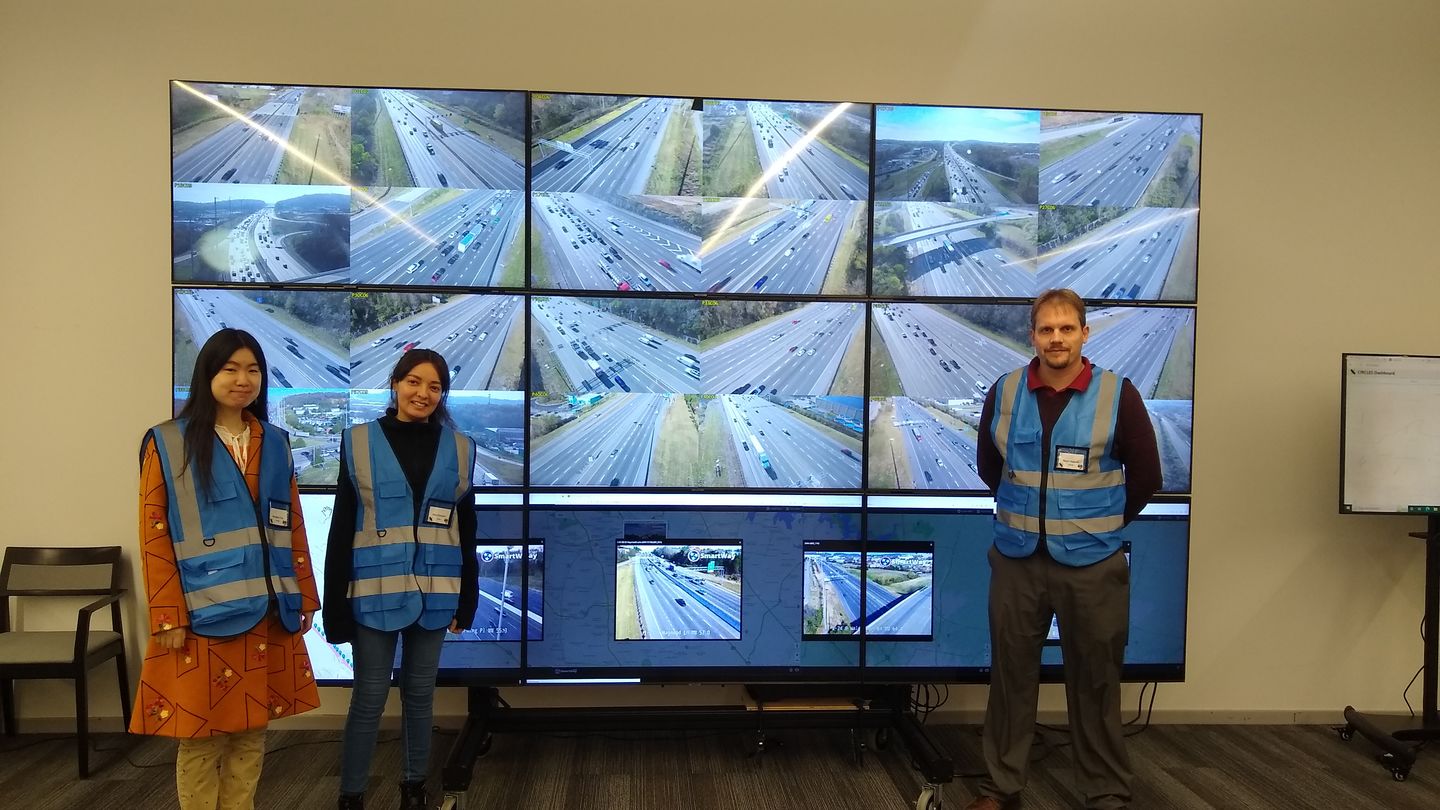
Experiment on smart interstate may pave the way to better fuel efficiency and traffic relief
The CIRCLES Consortium, consisting of Temple University, Vanderbilt University, Rutgers University and University of California, Berkeley, in coordination with Nissan North America and the Tennessee Department of Transportation, concluded a five-day open-track experiment on Nov. 18—the largest study of its kind in the world.
“The goal of this project is to investigate to what extent having just a few vehicles with carefully designed automation capabilities can make traffic flow smoother,” says Benjamin Seibold, associate professor, Department of Mathematics and director of the Center for Computational Mathematics and Modeling. “These vehicles will not eliminate congestion—but it will result in more steady and pleasant rides. It will significantly reduce fuel consumption and fuel costs; reduce greenhouse gas emissions and result in cleaner air; and result in less wear-and-tear on both vehicles and drivers. And those benefits apply to all vehicles on the road, not just the automated vehicles.”
Researchers tested an AI-powered cruise control system designed to increase fuel savings and ease traffic using 100 specially equipped Nissan Rogue vehicles. The experiment—which ran from Nov. 14 through Nov. 18 on a sensor-filled portion of U.S. Interstate 24—is based on an earlier, closed-track study where a single smart vehicle smoothed human-caused traffic congestion, leading to significant fuel savings.
A single AI-equipped vehicle could influence the speed and driving behavior of up to 20 surrounding cars, causing a kind of positive ripple effect in day-to-day traffic. The CIRCLES Consortium will spend the next several months analyzing data collected on the AI-equipped vehicles and their impact on the flow of traffic over the duration of the experiment.
The test was conducted on the recently opened I-24 MOTION testbed, the only real-world automotive testing environment of its kind in the world. Stretching for four miles just southeast of downtown Nashville, the smart highway is equipped with 300 4K digital sensors capable of logging 260,000,000 vehicle-miles of data per year.
The CIRCLES Consortium research is supported by the National Science Foundation and the U.S. Departments of Transportation and Energy. Support was also provided by Toyota North America and General Motors. The experiment included Toyota RAV4 and Cadillac XT5 vehicles.
